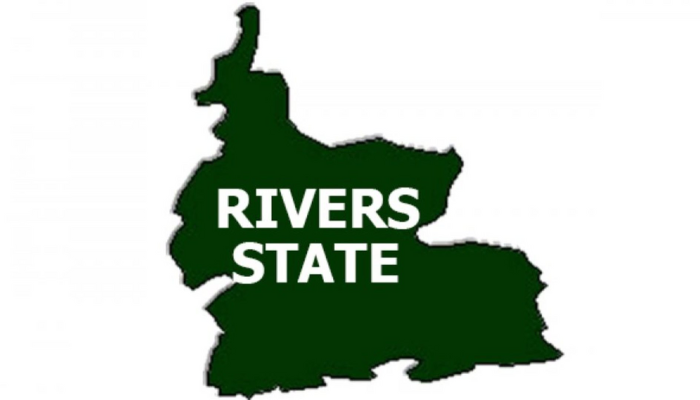…explains why Rivers emergency rule approval was done in closed session
The Senate Adhoc Committee on the Emergency Rule in Rivers State has faulted the nomination of Michael Ekpai Odey as Chairman of the Rivers State Independent Electoral Commission (RSIEC), citing his non-indigene status.
This came to the fore on Tuesday during the screening of nominees for appointment as chairman and members of the State electoral commission. The panel was chaired by Opeyemi Bamidele, the Senate Leader.
Read also: Rivers: Conducting LG polls under Ibas illegal, Bode George tells Tinubu
Businessday notes that Odey hails from Cross River State, the same state as the Sole Administrator in Rivers, Ibok Ekwe Ibas.
Other nominees screened by the panel as members of the SIEC were Lezaasi Lenee Torbira, Arthur Nwafor, Godfrey Woke Mbudiogha, Joyce Akaniwor, Olive A. Bruce and Chidi Halliday.
Reacting to the issue of his non-indigene status, the chairmanship nominee said, “With utmost respect, I have gone through the RSIEC’s enabling law, and there is nothing that precludes an appointment of anybody outside the State as chairman of the electoral management body in the State.”
When asked whether he possessed a copy of the Rivers State Independent Electoral Commission Law, he replied, “No, I don’t have it, but I went through it.”
Asked what integrity he would bring to the local government elections in Rivers State, Odey responded, “First and foremost, on character and indigene-ship.
“I’m not from Rivers State, so I don’t know anybody that is going to influence me to do anything otherwise because I will keep to the rules, I keep to the procedures, I will keep to the timelines. I’m going to remain neutral and impartial.”
On calls for the scrapping of State independent electoral commissions due to concerns over compromise, he said, “Well, this is also tied, in my opinion, to the principle of federalism.
“So if we are practicing federalism, I think that the sub-nationals should be allowed to handle local government elections because that gives them a sense of independence.”
He added, “We agree that this is the closest election to the grassroots. It is very emotive. People are very concerned and there is a tendency for the governor of the State, arguably so, to control that institution and mortgage its integrity. That is my own opinion.
“It’s a matter of integrity. We should be able to do our jobs, acknowledge any lapses and procedural ineffectiveness, and accept that where we err, we will correct it, not remain in self-denial.”
Read also: June 12: Democracy Day messages reveal true mind of Rivers people
He continued, “So I believe that with my presence there as the chairman, the important thing first is the stakeholders’ collaboration.
“From experiences, if you’re operating an opaque electoral process where the stakeholders are not brought into the electoral value chain, there is a tendency that there will be gaps and rumours, and those gaps are bound to be filled with misinformation.”
On the issue of his origin from Cross River State, the Senate Leader stated, “We are also in possession of the law. So, make it available to the Committee because, in my opinion, the Independent National Electoral Commission is about the Federal Republic of Nigeria. When we say a State independent electoral commission, it is about that State.
“This is not a matter we are just going to gloss over, and it has to be something that we can defend. We must find that defence as stated in the law, even if there is nothing in the law saying you cannot be from outside of the state.”
He added, “Even if nothing says that, we still will need to look at it to be sure that it’s not something that would be repugnant to the public conscience. It has to be something that we’re able to defend.
“So we’ll take a second look at that, perhaps the eligibility criteria, otherwise, that’s not in doubt. But your appointment as RSIEC has raised a new issue for us to look at so that we know whether it’s something that can serve as a precedent or not.”
Meanwhile, Yemi Adaramodu, Chairman of the Senate Committee on Media and Public Affairs, also explained why his colleagues decided to approve the emergency rule declared by President Tinubu in Rivers State behind closed doors.
Adaramodu explained during a press briefing on the midterm activities of the 10th Senate.
Read also: Rivers N1.48trn 2025 spending plan: Budget of hope for Sim Fubara, lawmakers
Critics had accused the Red Chamber of secretly approving the emergency rule instead of doing so during an open plenary session.
But Adaramodu said, “Our Standing Orders say such matters must be debated in closed-door sessions; Rule 131, 132, and 134. Once a decision is reached in a closed session, it cannot be reopened in plenary.
“Everyone is now a lawmaker, a lawyer, a coach, questioning what they don’t know. But the rules are clear.”
He said, “During the closed session, we debated for three to four hours. Once an agreement is reached, it’s final.
“The presiding officer then comes back to plenary and puts the question, ‘Do we affirm what was agreed in the closed session?’ Everyone said ‘Yes.’ No one said ‘No.’ That’s where it ends.”

